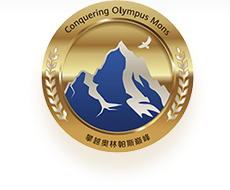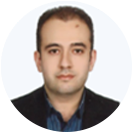This site uses cookies. By continuing to browse the site you are agreeing to our use of cookies. Read our privacy policy>
![]()
This site uses cookies. By continuing to browse the site you are agreeing to our use of cookies. Read our privacy policy>
![]()
Enterprise products, solutions & services
As a new factor of production, data has become a basic strategic resource in today's digital economy. However, explosive data growth and innovative data applications place higher requirements on data infrastructure. Sufficient storage capacity, premium usability, higher security, and better energy efficiency are now key priorities for industry, academia, and research organizations. In addition to ever-changing requirements for IT architecture, how to build data infrastructure with maximum energy efficiency is a major challenge for the industry.
Building a technological ecosystem, especially in the field of basic technology breakthroughs, requires the collaboration of all parties. That's why Huawei established the annual OlympusMons Awards in 2019 to lead the global research of data storage basic theories, break through key technical problems, accelerate the industrialization of scientific research achievements, and achieve industry-academia-research win-win collaboration.
Learn MoreTo handle various devices and diverse application workloads in data centers, high-throughput data processing needs, and energy saving trends, research is needed into technologies such as data-centric, network-storage-compute converged architecture, diversified heterogeneous virtualization, data center-level energy saving, data-storage collaboration, and data services that deliver optimal user experience. This will enable us to build a data infrastructure with optimal energy efficiency.
Explosive data growth is causing performance and capacity bottlenecks in existing storage systems. To leverage new types of non-volatile, optical, and magnetic media, research is needed into technologies like those that accelerate replacement of HDDs with SSDs in primary storage scenarios, memory media, memory-class storage, new cost-effective warm/cold data storage media and systems, and cost-effective storage-compute convergence at the edge. This will enable us to build next-gen storage with superb cost-effectiveness per bit.
Learn MoreAt the 2023 Global Data Storage Professor Forum, the trophies of the 2022 OlympusMons Awards (comprising the OlympusMons Award and OlympusMons Pioneer Award) were official presented to the winning teams. The OlympusMons Award was awarded to the team led by Professor Onur Mutlu of ETH Zurich for their research into network-storage-computing converged systems. This team proposed the adaptive optimization algorithm, accelerating the upgrade of the storage architecture. Also recognized were the winners of the 2022 OlympusMons Pioneer Award, who included Professor Jin Hai's team from Huazhong University of Science and Technology, Professor Zhao Weisheng's team from Beihang University, Professor Miao Xiangshui's team from Huazhong University of Science and Technology, and Dr. Liu Jian's team from Zhejiang University.
The winning projects were evaluated and ranked by the Review Committee based on four indicators: innovation, advancement, generality, and feasibility.



























As we move towards the intelligent era, we must cross the data peak.
OlympusMons represents Huawei Storage's unremitting pursuit and exploration on the road to data peaks.
The integration of industry, education, and research opens the door for innovation in data infrastructure.